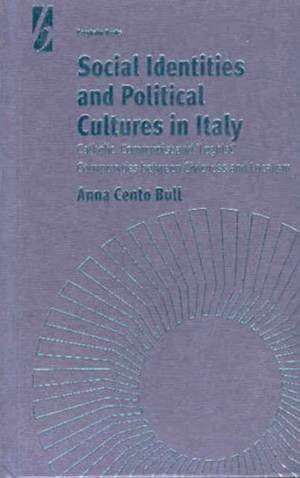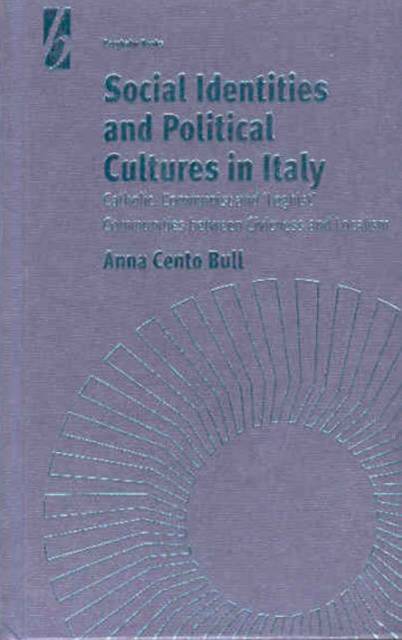
- Afhalen na 1 uur in een winkel met voorraad
- Gratis thuislevering in België vanaf € 30
- Ruim aanbod met 7 miljoen producten
- Afhalen na 1 uur in een winkel met voorraad
- Gratis thuislevering in België vanaf € 30
- Ruim aanbod met 7 miljoen producten
Social Identities and Political Cultures in Italy
Catholic, Communist, and 'Leghist' Communities Between Civicness and Localism
Anna Cento BullOmschrijving
Since the demise of the First Republic, Italy's social and political developments have appeared both intriguing and contradictory to the outside world, resulting in controversial interpretations of the current changes. Based on a study of two northern areas characterized until recently by a proletarian/communist subculture and an interclassist/Catholic one, this book offers important perspectives as a result of new research. Political change has often been spectacular. However, the author argues, it has been accompanied by a high degree of continuity in the sphere of kinship and social networks, thus remaining embedded in unchanging social structures. She arrived at her findings by going beyond traditional methods of analyzing political change and addressing the more fundamental question of the underlying behavior and attitudes in family and social relations, moral and religious beliefs and values, and forms of political socialization and identity. By examining the concepts such as "social capital" and "civicness," recently popularized and applied to Italy by Robert Putnam, and the role of subculture, she comes to the conclusion that Italian "civicness" is inextricably bound up with cultural and political localism and that the linear development from collective, socially-embedded political behaviour towards pluralism and individuals, as envisaged by many political commentators, does not hold in the light of thorough research; the relationship between pluralistic and collectivist behaviour is much more complex than has been generally believed so far.
Specificaties
Betrokkenen
- Auteur(s):
- Uitgeverij:
Inhoud
- Aantal bladzijden:
- 288
- Taal:
- Engels
Eigenschappen
- Productcode (EAN):
- 9781571819444
- Verschijningsdatum:
- 1/01/2001
- Uitvoering:
- Hardcover
- Formaat:
- Genaaid
- Afmetingen:
- 140 mm x 216 mm
- Gewicht:
- 480 g

Alleen bij Standaard Boekhandel
Beoordelingen
We publiceren alleen reviews die voldoen aan de voorwaarden voor reviews. Bekijk onze voorwaarden voor reviews.











